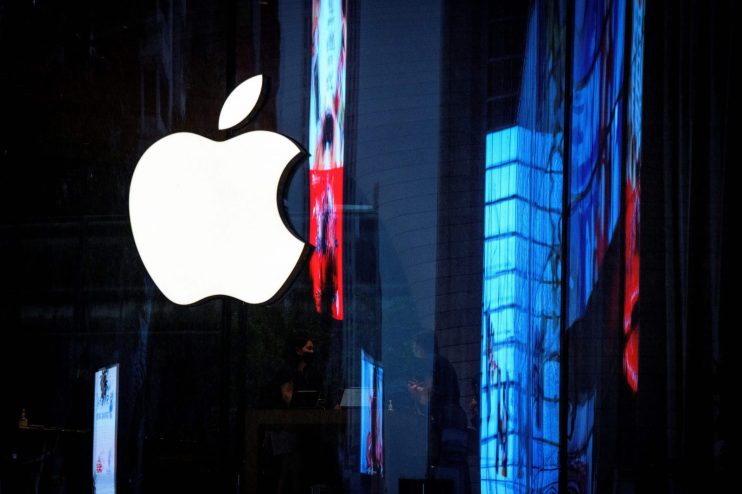Weak iPhone sales pull down Apple shares despite revenue boost

Apple’s announcement today that iPhone sales were weaker than expected sent shares down four per cent even as the tech company’s revenue and profit did better than Wall Street expected thanks to booming Mac and AirPods sales.
Investors expected lower revenue from the Cupertino company’s bestselling product after delays left loyal fans clasping wallets shut while waiting weeks longer than usual to upgrade. But the hold-back was even worse than analyst had expected, with iPhone sales dropping 20.7 per cent to $26.4bn.
Despite those delays, Apple has mostly beaten sales expectations this year and released a slew of new products and services that its customers have embraced while largely homebound during the pandemic.
That carried over into the company’s top and bottom lines. Apple said revenue and profits for the fiscal fourth quarter ended on 26 September was $64.7bn and 73 cents per share, compared with analyst estimates of $63.7bn and 70 cents per share, according to IBES data from Refinitiv.
But the flagship iPhone 12’s announcement was delayed until 13 October, several weeks later than usual, meaning no opening-weekend iPhone sales are included in the fourth-quarter results.
Analysts anticipated consumers would hold off on iPhone purchases ahead of new iPhone 12 models. Those devices feature 5G networking connectivity and are expected to be strong sellers as mobile carriers jump back into subsidizing device purchases to lure consumers into new 5G data plans.
In an interview with Reuters, Apple chief executive Tim Cook said that he was “optimistic” about the iPhone 12 cycle based on the first five days of shipping data.
“5G is a once-in-a-decade kind of opportunity. And we could not be more excited to hit the market exactly when we did,” Cook said. “At least in the US, the carriers are being very aggressive.”
The iPhone 12 release timing drove down sales in Greater China to $7.95bn from $11.13bn the year before. Cook said all of Apple’s non-iPhone products grew in China and Apple expects sales to pick up there again.
“What we’re seeing in the early going in the first five days gives us a lot of confidence that China will return to growth in our fiscal Q1,” Cook told Reuters.
Apple has offset volatile iPhone sales in recent years with steady growth in its services segment, which includes streaming music and television. Services revenue rose 16.3 per cent to $14.5bn, compared with analyst estimates of $14bn. Cook told Reuters that Apple One, a bundle of Apple’s paid services, will launch on Friday.
Cook told Reuters that Apple has 585m paying subscribers across its platforms, up from 550m the previous quarter and closer to the goal of 600m subscribers that the company set out for the end of calendar 2020.
Apple did, however, announce a range of new Apple Watches and iPads that went on sale during the quarter. The pandemic-driven shift toward working, learning and consuming entertainment from home helped Apple post double-digit revenue increases in every non-iPhone product category as well as its services business, which includes its streaming television offering and forthcoming paid fitness service.
It was the second straight quarter of growth across the non-iPhone hardware categories, some of which had experienced declines until a pandemic sales boom.
Apple faces an uncertain fiscal first quarter with new lockdown orders issued in major European markets such as France and Germany on Wednesday. While the company has so far managed to keep sales booming with its retail stores in a state of flux, analysts have raised concerns that the lockdowns or their economic fallout could mute holiday iPhone sales.
Apple’s Cook said the company gets a “tailwind” boost from having four new phone models at different price points – the most it has ever released in one fall season — that appeal to a variety of customers, and a “headwind” from having fewer weeks in the quarter to sell them.
“Covid I would classify as kind of an unknown,” Cook said.
Apple said revenue from its accessories segment was up 20.8 per cent to $7.9bn, compared with analyst estimates of a 13.5 per cent rise to $7.4bn, according to Refinitiv data. Mac and iPad sales rose to $9.0bn and $6.8bn, compared with estimates of $7.92bn and $6.12bn, according to Refinitiv data.
“Mac had its best quarter ever in the history of the company,” Cook said.
The company also said it had returned nearly $22bn to shareholders in the quarter as it kept its target of reaching a new cash neutral position.